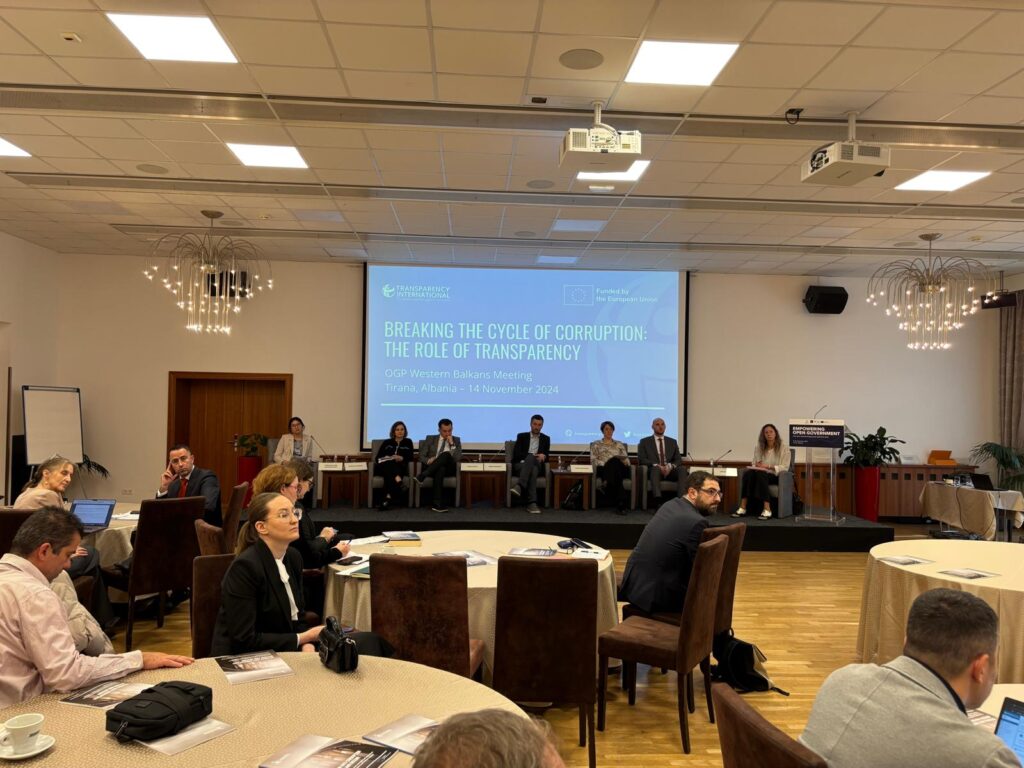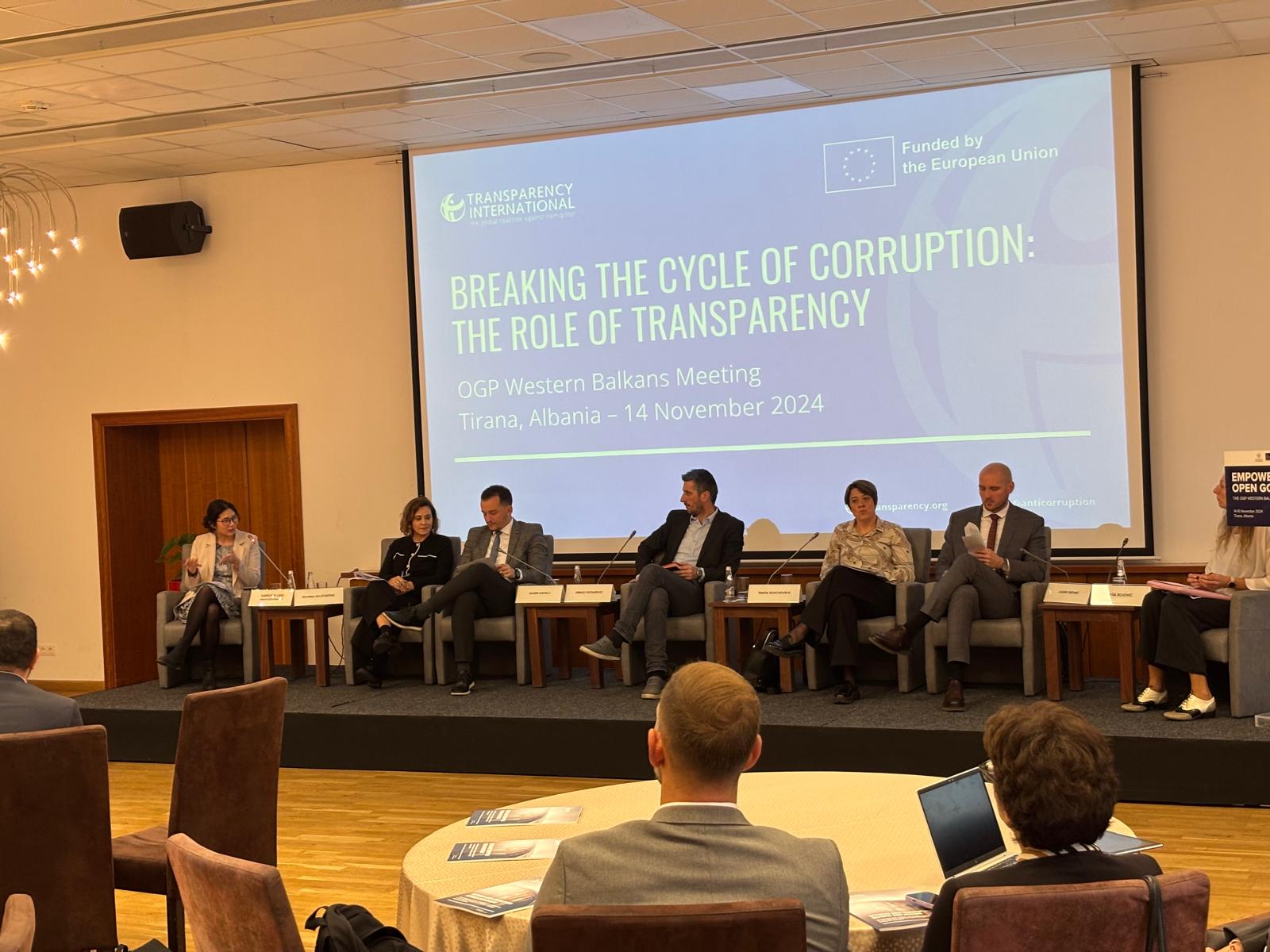A conference on empowering of the Open Government Partnership (OGP) was held in Tirana on 14th and 15th November. The conference was held with the support of the Albanian government, the Open Government Partnership and the Regional Academy for Public Administration. The event was attended by ministers, parliamentarians and representatives of civil society organizations from the Western Balkans. During these two days were shared opinions, experiences and challenges that countries face in implementing their Open Government Partnership (OGP) commitments. The first day was opened with a ministerial panel discussion on the reforms taken by the governments under the OGP, the challenges and the next steps. Each of the ministers gave their views on the achieved goals, their commitments for the future and the actions and activities that are being undertaken to fulfill the OGP commitments.
The second session was organized by Transparency International. The chapters from the Western Balkan countries had the opportunity to discuss political integrity and accountability of governments through the use of open data. Topics such as the use of open data, public procurement, political party financing and other areas covered by the National Integrity System, analysis conducted in each of the countries were presented during this panel. The representative of Transparency International-Macedonia, Marija Sunchevska, was a speaker at this panel. She presented the current situation with open data related to public procurement, the awarding of concessions for exploration of mineral goods and the construction of small hydroplants. It was emphasized that it is necessary to open the data on the exploitation of mineral goods and the construction of small hydroplants following the example of public procurement data so that all interested parties can easily access searchable data on these areas. In the second part, was discussed the beneficial ownership register and the use of this data as an effective tool in the fight against corruption. The discussion was also accompanied by questions from the audience.
 In the second part of the first day, the digitalization of services, access to these services and citizens’ awareness of how to use them were also discussed. And in the last session, the challenges that civil society organizations face in the implementation of the plans for OGP was raised.
In the second part of the first day, the digitalization of services, access to these services and citizens’ awareness of how to use them were also discussed. And in the last session, the challenges that civil society organizations face in the implementation of the plans for OGP was raised.
The second day was opened with a discussion of the parliamentarians from the Western Balkans. They spoke about the openness of parliaments, their oversight role and the availability of open data for their work. The event was closed with a presentation of the efforts to strengthen the OGP and create new innovative methods.




